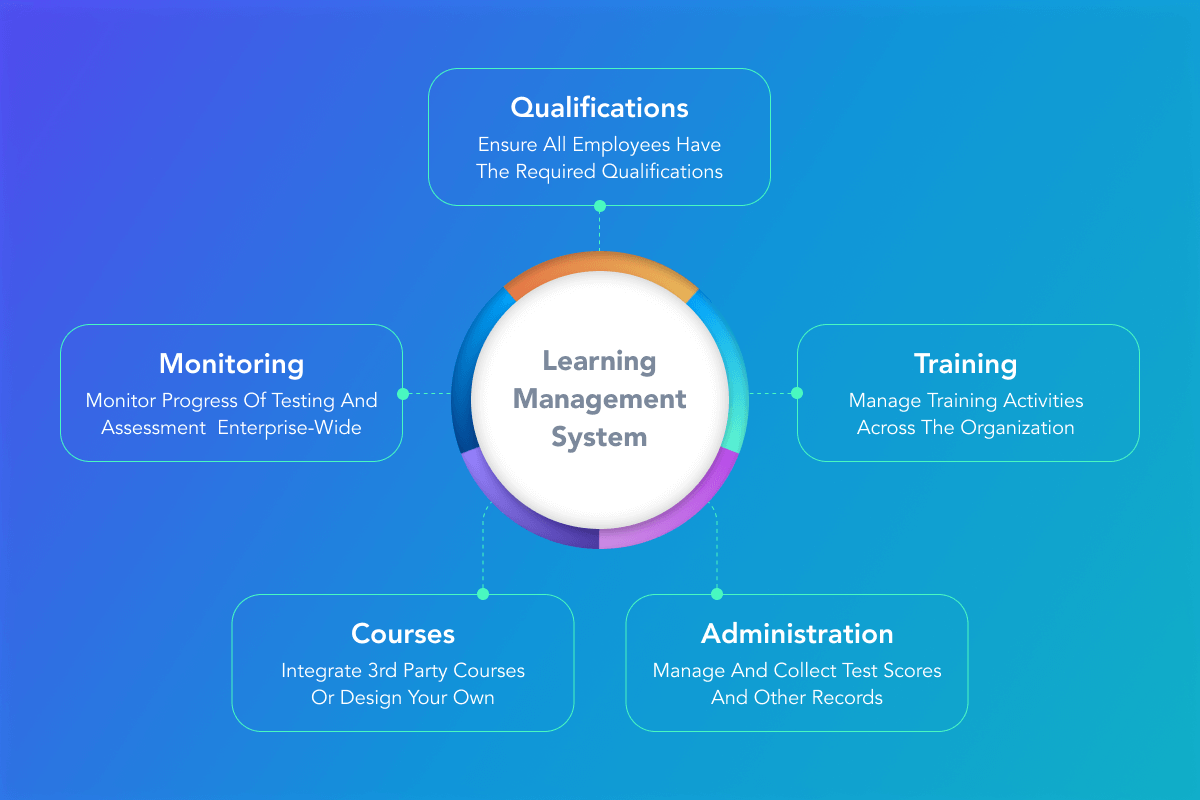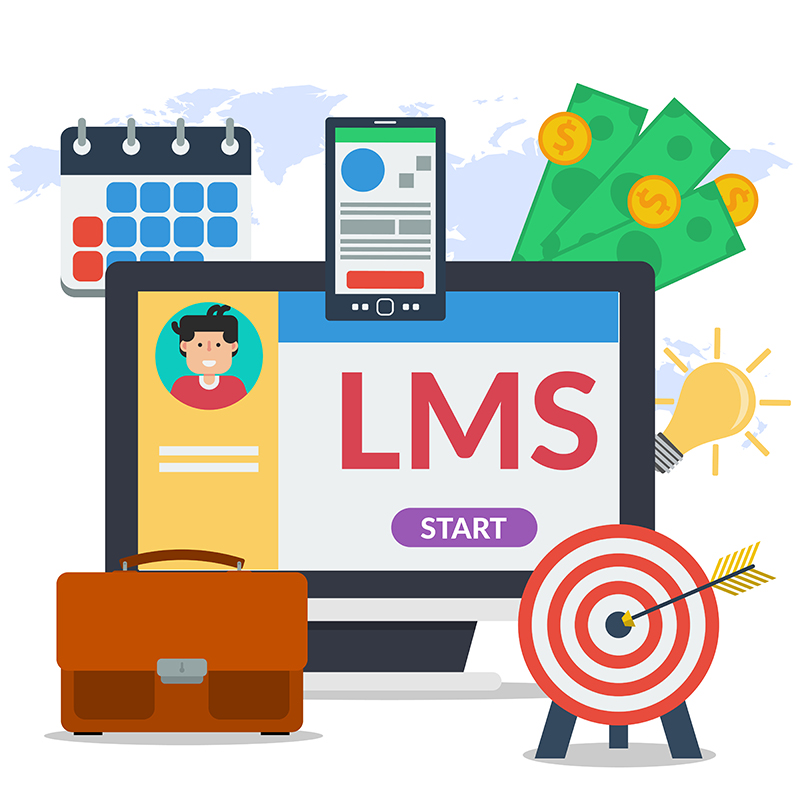Learning Management System Singapore: Key Considerations When Selecting an LMS
Learning Management System Singapore: Key Considerations When Selecting an LMS
Blog Article
Streamline Education With a Leading Learning Administration System
In the ever-evolving landscape of education, the adoption of a leading Learning Management System (LMS) offers a crucial possibility to simplify procedures and improve both mentor and discovering experiences. By supplying and automating management jobs tailored learning courses, a reliable LMS not only helps with better involvement yet likewise fosters an environment helpful to partnership and inclusivity.
Benefits of a Learning Monitoring System
A Discovering Administration System (LMS) offers countless benefits that can considerably enhance the instructional experience for both learners and instructors. Mostly, an LMS helps with streamlined training course administration, allowing teachers to handle course products, track learner progression, and evaluate efficiency effectively. This automation reduces the management burden on teachers, enabling them to concentrate more on mentor and student interaction.
Additionally, LMS systems sustain individualized learning courses, suiting diverse understanding styles and speeds. This flexibility promotes an extra inclusive atmosphere, making it possible for learners to accessibility resources that finest match their demands. The accessibility of an LMS enables trainees to involve with training course content anytime and anywhere, promoting self-directed discovering and suiting various schedules.
One more significant advantage is the boosted collaboration opportunities an LMS supplies. Conversation discussion forums, team projects, and peer assessments encourage interaction among learners, improving their understanding with shared viewpoints. Moreover, the data analytics features of an LMS enable instructors to acquire insights into learner interaction and performance, notifying training methods and interventions.
Key Features to Seek

Following, robust reporting and analytics capacities give useful insights right into student development and engagement, permitting teachers to make data-driven decisions. Assimilation with various other tools, such as material authoring software and interaction platforms, is additionally crucial for enhancing capability and enhancing workflows.
Scalability is an additional important feature, making certain that the LMS can grow along with the organization's demands, fitting an increasing variety of users and web content. Additionally, mobile compatibility is critical in today's digital landscape, making it possible for learners to access instructional materials on various tools.
Finally, solid security actions should remain in place to secure delicate info and keep compliance with academic laws. By prioritizing these crucial features, organizations can choose an LMS that sustains effective mentor and finding out outcomes, eventually boosting the educational experience for all stakeholders included.

Enhancing Pupil Interaction
Pupil engagement is a critical aspect in the success of any curriculum, as it directly influences finding out outcomes and retention prices. A robust Knowing Monitoring System (LMS) can play a critical duty in enhancing trainee involvement with different cutting-edge features.

Additionally, personalized discovering courses enable pupils to progress at their own rate, catering to specific learning styles and choices. This adaptability not only cultivates a sense of ownership over their discovering journey however additionally maintains students invested and encouraged.
Additionally, real-time feedback systems make it useful source possible for educators to keep track of pupil efficiency and provide timely assistance, more enhancing the learning experience.
Application Approaches for Institutions
Successful application of a Learning Monitoring System (LMS) needs establishments to embrace a tactical technique that straightens modern technology with instructional objectives. To achieve this, organizations need to start by performing an extensive requirements evaluation to determine certain needs, making certain that the LMS will effectively address challenges faced in teaching and learning.
Following, interesting stakeholders-- professors, managers, and trainees-- is important for promoting a society of cooperation and support. Training sessions ought to be organized to outfit customers with the essential abilities to take advantage of the LMS efficiently. Additionally, institutions must allot enough resources, including time and spending plan, to promote a smooth shift and ongoing maintenance.
In addition, producing a phased rollout plan can aid alleviate prospective disturbances. Establishments can begin with pilot programs to evaluate functionality and collect comments prior to full-blown implementation. Continual examination and adaptation of the LMS based upon individual experience will additionally enhance its performance.
Finally, it is vital to communicate a clear vision of exactly how the LMS supports instructional practices, therefore encouraging buy-in from all events involved. By adhering to these techniques, establishments can guarantee an effective LMS implementation that inevitably enhances the instructional experience.
Measuring Success and Results
Gauging the success and outcomes of a Discovering Monitoring System (LMS) is important for identifying its influence on training and knowing. This process includes the collection and evaluation of measurable and qualitative data to assess the efficiency of the LMS in attaining instructional goals. Key performance signs (KPIs) such as trainee involvement prices, training course conclusion prices, and analysis ratings provide crucial understandings into individual communication and learning outcomes.
Additionally, surveys and comments systems can catch the experiences of both teachers and students, providing important point of views on usability, content relevance, and overall complete satisfaction. By triangulating these data sources, establishments can recognize toughness and locations for enhancement within the LMS framework.
Additionally, aligning LMS metrics with institutional purposes improves responsibility and supports strategic preparation (LMS Singapore). For example, tracking retention prices and post-course performance can inform educational program changes and resource allotment. Ultimately, an organized method to measuring success and end results not only ensures continual enhancement of the LMS but additionally promotes a society of data-driven decision-making. This dedication to assessment encourages schools to improve their teaching methods and optimize learner experiences successfully.
Verdict
The assimilation of a leading Understanding Management System (LMS) dramatically enhances academic experiences by automating management tasks and supplying personalized knowing possibilities. By fostering partnership and inclusivity, a reliable LMS not just improves trainee involvement yet also drives much better more tips here discovering end results. Institutions should focus on the option and execution of an LMS that aligns with their goals, making sure durable analytics and interactive web content are made use of to measure success and continuously enhance the academic atmosphere.
An Understanding Monitoring System (LMS) offers numerous advantages that can considerably improve the academic experience for both students and teachers.Furthermore, LMS platforms support individualized discovering paths, accommodating diverse discovering designs and rates.Measuring the success and outcomes of a Knowing Administration System (LMS) is crucial for determining its influence on training and understanding.The assimilation of a leading Discovering Administration System (LMS) substantially improves educational experiences by automating administrative jobs and supplying individualized discovering chances. By fostering cooperation and inclusivity, an effective LMS not just enhances student engagement yet likewise drives better learning end results.
Report this page